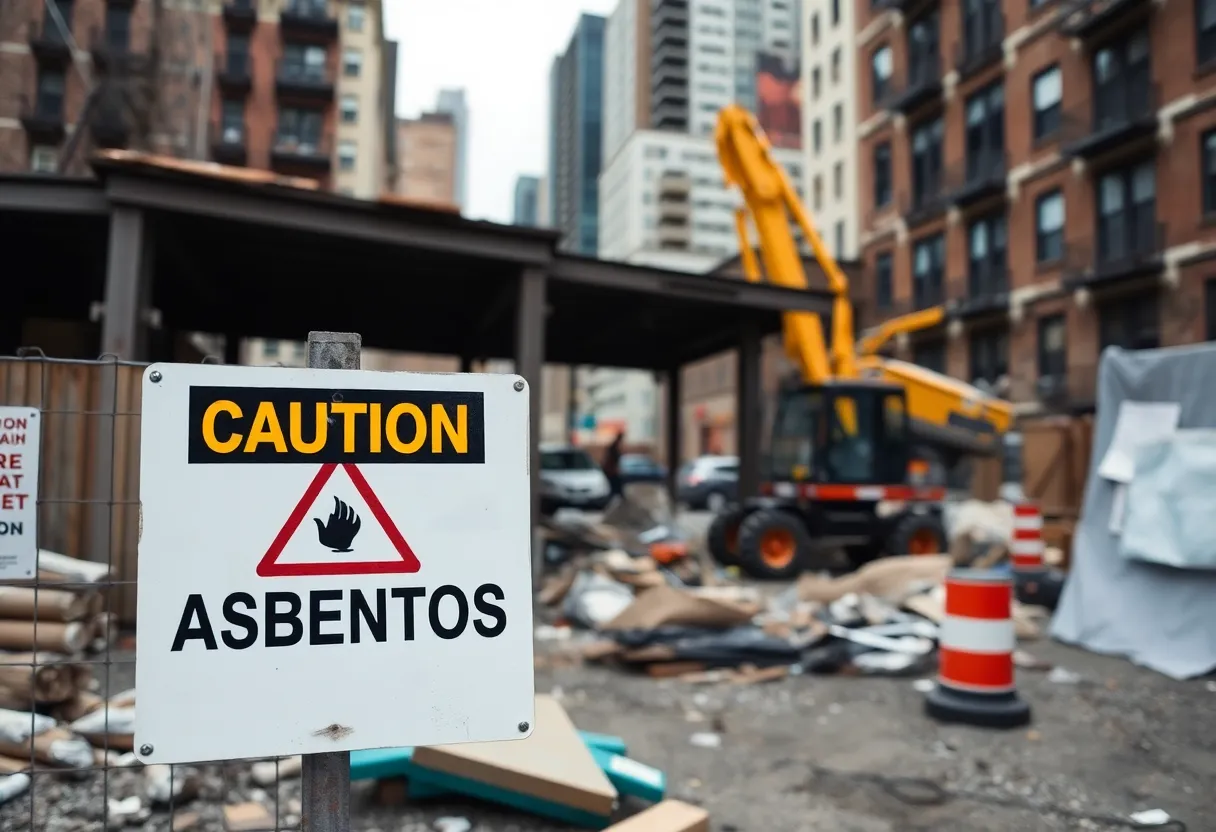News Summary
Tension rises as Peebles Corporation raises safety concerns about asbestos in a building slated for demolition as part of the Brooklyn Village development.
An Asbestos Dilemma: Mecklenburg County vs. Peebles Corporation in Brooklyn Village Project
As the clock ticks down to the end of July, the impending demolition deadline for a former education building near Marshall Park is creating tension between Mecklenburg County and the Peebles Corporation. This demolition is a key component of the ambitious Brooklyn Village development project, but developer Donahue Peebles is raising alarms over significant safety concerns.
Peebles Corporation’s frustration stems from the revelation that the building in question is purportedly “loaded with friable asbestos,” a detail that was allegedly not disclosed prior to the contractual agreement. Now, Peebles contends that meeting the July deadline is an impossibility due to overwhelming contamination levels, and has formally requested a one-year extension to complete the demolition.
Past Asbestos Findings and Current Safety Concerns
The roots of this controversy stretch back to 2010, when Charlotte-Mecklenburg Schools identified asbestos within the structure, deciding against any removal initiatives at the time. This historical context raises questions about what Mecklenburg County knew and when they knew it. Peebles asserts that the heavy presence of asbestos has made it both legally and physically infeasible to complete the demolition by the end of the month. With no urgency felt to rush the project—considering that construction won’t commence for another 8 to 10 years—this stalemate is stalling progress.
The first phase of the Brooklyn Village project, which successfully transformed the area formerly known as Bob Walton Plaza, has already been completed. This initial effort included the demolition of another building, setting a precedent of progress that now feels threatened by the current asbestos dilemma.
A Focus on Affordable Housing Amid Delays
The immediate plans for Brooklyn Village include the construction of two affordable housing apartment buildings, contributing a total of 250 units to a city that currently lacks over 35,000 affordable housing units, according to city estimates. The expected vertical construction for the entire project is slated for June 2026, making the prospect of meeting current deadlines for demolition appear increasingly grim.
This protracted timeline has not gone unnoticed, with the development team facing significant criticism over insufficient amounts of affordable housing featured in earlier proposals. While previous plans were met with skepticism, the updated vision now emphasizes the commitment to affordable housing, promising at least 10% of the units aimed at lower-income households.
Financial and Community Challenges
The projected cost of the Brooklyn Village project stands at a staggering $700 million, with initial construction dates set for fall 2023 before being pushed back due to less favorable market conditions marked by high interest rates and dwindling lending support. The development team at BK Partners is diligently seeking financial aid from a variety of sources, including Housing Trust Fund dollars, federal tax credits, and a request for $2.5 million in gap financing from the county.
This project strives not only to fulfill pressing housing needs but also to honor the historical significance of the Brooklyn neighborhood, which was largely destroyed during urban renewal initiatives. Peebles Corporation is collecting oral histories from the old Brooklyn neighborhood to integrate these narratives into the new development, aiming to shed light on and recognize past injustices.
Looking Ahead: Building a Legacy
Despite the hurdles currently faced, Peebles remains hopeful about the project’s future. Brooklyn Village has the potential to not only provide much-needed housing solutions but also to heal community wounds and foster a sense of belonging that acknowledges the history of those who lived in Brooklyn before urban renewal. While negotiations are ongoing and disputes linger, the vision for Brooklyn Village as a dynamic community hub remains strong.
The potential for revitalization is palpable, but without timely resolutions, the community may have to wait longer to see the fruits of this promising, yet troubled, development.
Deeper Dive: News & Info About This Topic
HERE Resources
Philadelphia School District Faces Federal Charges Over Asbestos Violations
Asbestos Under Fire: EPA’s Reconsideration Sparks Controversy
Trump Administration Reconsiders Chrysotile Asbestos Ban, Igniting Health Concerns
Unmasking the Asbestos Threat in Supermarkets: A Hidden Danger
Philadelphia Schools Face Criminal Charges Over Asbestos Violations
EPA Motion Sparks Alarm Among Mesothelioma Advocates
Controversial Asbestos Removal Plan for New Fire Station
Philadelphia’s Schools Face Mesothelioma Threat Due to Asbestos
Tragic Legacy of the USS Blandy: Heroes Affected by Asbestos
USS Bausell Crew Faces Asbestos-Related Health Crisis
Additional Resources
- Charlotte Ledger: Peebles Seeks New Brooklyn Village
- Wikipedia: Asbestos
- Axios: Brooklyn Village Development Delay
- Google Search: Brooklyn Village project
- Axios: Commissioners and Affordable Apartments
- Encyclopedia Britannica: Mecklenburg County
- Charlotte Observer: Brooklyn Village Project News
- Google News: Affordable Housing Charlotte



















